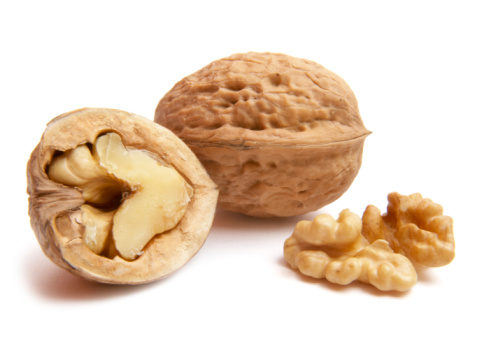
Study Explores Heart-Healthy Benefits of Walnuts

Participants were split into three diet groups, all of which had a lower saturated fat content than the average American diet,according to a press release on the study.One diet included walnuts; the other two included vegetable oils. All three diets had a positive effect on cardiovascular outcomes, but the one with whole walnuts provided the greatest benefits, including lower central diastolic blood pressure—indicating a lower risk for CVD.
“When participants ate whole walnuts, they saw greater benefits than when they consumed a diet with a similar fatty acid profile as walnuts without eating the nut itself," Penny Kris-Etherton, distinguished professor of nutrition at Penn State, said in the release. "So it seems like there’s a little something extra in walnuts that are beneficial—maybe their bioactive compounds, maybe the fiber, maybe something else—that you don’t get in the fatty acids alone.”
That was a purpose of the study, according to Alyssa Tindall, recent student in Dr. Kris-Etherton’s lab and a Ph.D. graduate in nutrition: to figure out which part of the walnut is beneficial to heart health. “Walnuts contain alpha-linolenic acid,” Dr. Tindall said in the release, “a plant-based omega-3 that may positively affect blood pressure. We wanted to see if ALA was the major contributor to these heart-healthy benefits, or if it was another bioactive component of walnuts, like polyphenols.”
The researchers said the results show the benefits of opting for healthier alternatives in place of saturated fat. "Instead of reaching for fatty red meat or full-fat dairy products for a snack, consider having some skim milk and walnuts," Kris-Etherton said. "I think it boils down to how we can get the most out of the food we're eating, specifically, 'how to get a little more bang out of your food buck.' In that respect, walnuts are a good substitute for saturated fat."

The editorial team at WholeFoods Magazine has decades of experiences reporting on natural products industry news, trends, and more. This national, monthly business-to-business magazine has been published continuously for nearly 40 years (the magazine was founded in 1977, and has been owned by Wainer Finest Communications since 1984). It is the longest-tenured media outlet of its kind in the natural products industry. The editorial focus at WholeFoods Magazine is, and always has been, on informing and educating members of the natural products industry.
The Magazine
Information
About Us
NOTE: WholeFoods Magazine is a business-to-business publication. Information on this site should not be considered medical advice or a way to diagnose or treat any disease or illness. Always seek the advice of a medical professional before making lifestyle changes, including taking a dietary supplement. The opinions expressed by contributors and experts quoted in articles are not necessarily those of the publisher or editors of WholeFoods.







